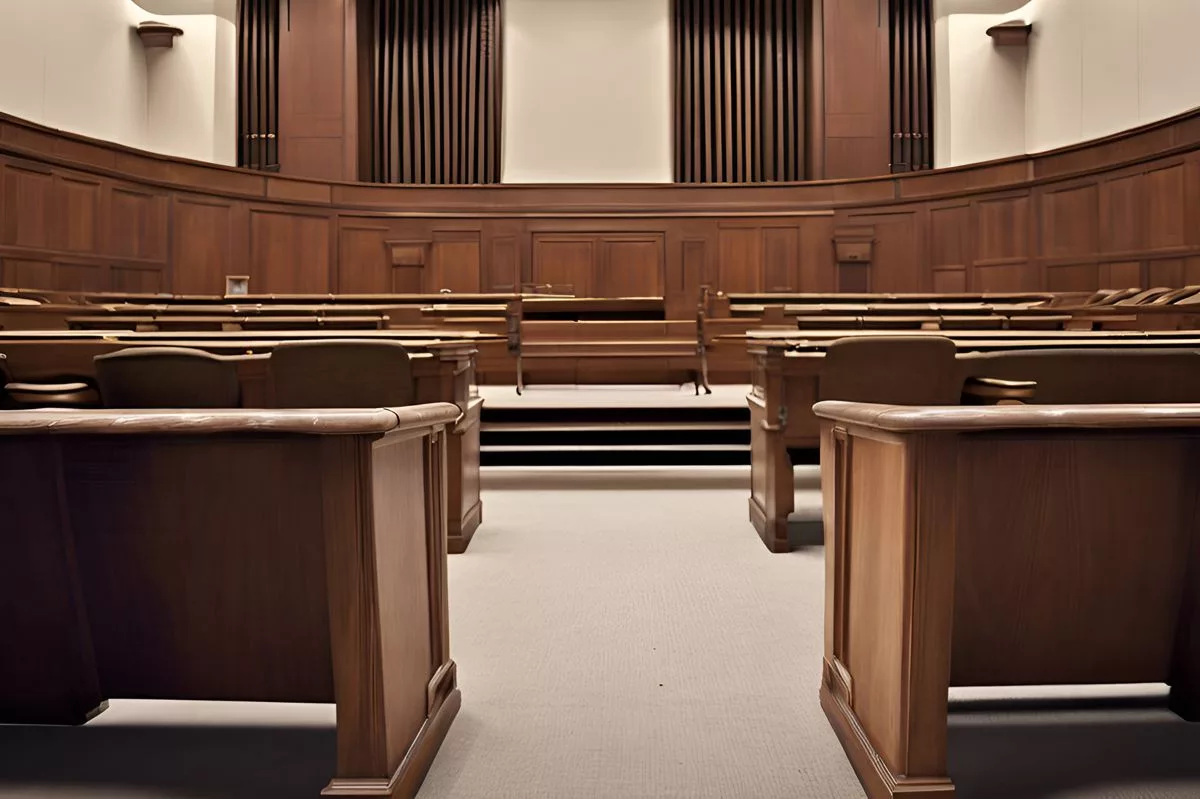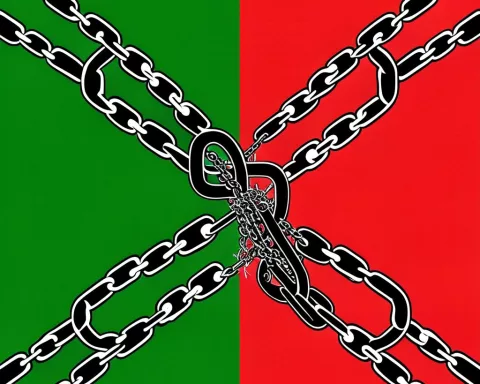Dr. Hlophe’s departure from the Judicial Service Commission (JSC) in South Africa is a big turning point that shakes up how judges are chosen. His exit leaves an important spot open, showing the struggles and politics involved in getting new members appointed. This change is not just about filling a seat; it impacts the future of fairness and justice in the country. As South Africa looks for a new JSC member, it faces a chance to rethink its approach to law and politics, reminding everyone how crucial it is to keep the judiciary independent and transparent. This moment is a call for careful choices that reflect the diverse voices of the nation.
What is the significance of Dr. Hlophe’s departure from the Judicial Service Commission in South Africa?
Dr. Hlophe’s departure from the Judicial Service Commission (JSC) marks a pivotal shift in South Africa’s judicial landscape. It highlights challenges in appointing new members amid ongoing processes, reflects political dynamics within the National Assembly, and underscores the ongoing need for judicial independence and transparency.
Dr. Hlophe’s Departure: A Catalyst for Change
In the early days of October 2024, a key development unfolded within the political circles of South Africa: Dr. Mandlakayise John Hlophe announced his departure from the Judicial Service Commission (JSC). This move not only disrupted the commission’s immediate operations but also sent ripples through the broader framework of South African judicial appointments. As Ms. Thoko Didiza, Speaker of the National Assembly, received the formal notification from the uMkhonto weSizwe Party, the magnitude of this decision quickly became clear.
The JSC has long been a pillar of judicial integrity in South Africa, ensuring that those who sit in judgment uphold the principles of justice and fairness. Since its inception, it has played a crucial role in vetting judicial candidates, a significant responsibility in a country still grappling with its complex historical legacy. Dr. Hlophe, once a figure of significant promise within the judicial landscape, leaves behind a vacancy that signifies more than an empty seat. It represents a shift in the political currents that guide judicial appointments.
Dr. Hlophe’s exit comes during a pivotal moment. According to the Constitution and the National Assembly’s Rules, the Assembly is tasked with appointing six members to the JSC, including at least three from opposition parties. This structure aims to maintain a balanced and diverse perspective within the commission. However, Dr. Hlophe’s resignation introduces logistical hurdles, particularly as the October 2024 interviews proceed. The challenge of appointing a new member in the midst of this process highlights the intricate dance of governance and legal oversight.
Navigating the Complexities of Political and Judicial Balance
The correspondence between Ms. Didiza and Chief Justice Mandisa Maya underscores the procedural rigor that characterizes South African parliamentary processes. As the National Assembly embarks on the quest to find Dr. Hlophe’s successor, it becomes evident that the task extends beyond mere administration. The selection will mirror broader political dynamics and potential ideological shifts within the assembly. The mandate to include opposition party members ensures the JSC reflects South Africa’s political diversity, capturing a spectrum of views and ideologies.
Dr. Hlophe’s withdrawal also sheds light on the internal politics of the uMkhonto weSizwe Party. The decision to remove his nomination might signal strategic recalibrations within the party or between the party and its supporters. Such political maneuvers often indicate deeper considerations, perhaps in anticipation of electoral challenges or to align more closely with public sentiment.
Moreover, the allocation of public funds to political parties based on their parliamentary representation underscores the financial dimensions of South African politics. This funding supports parties in their operations and public engagement, influencing both internal dynamics and external relations. As the JSC proceeds with its interviews sans a full complement of Assembly-nominated members, the intertwined nature of governance, representation, and public accountability becomes increasingly apparent.
Reflections on Judicial Independence and the Future
In the global arena, South Africa’s JSC is distinctive for its effort to balance political influence with judicial independence. The commission’s design seeks to foster transparency and curb undue interference in judicial appointments, a challenge many nations face. Historical parallels can be drawn with systems like that in the United States, where the appointment and confirmation of judges often ignite intense political debate. While distinct, South Africa’s approach shares the common goal of ensuring a judiciary that is both representative and autonomous.
Dr. Hlophe’s resignation may also prompt introspection within South Africa’s legal community. Considering the evolution of judicial appointments, one might reflect on the impact of legal reformists like Albie Sachs, who have shaped the nation’s judicial philosophy. Advocating for a system that prioritizes human dignity and equality, their influence remains a guiding force as the JSC continues its work amidst evolving political landscapes.
As the National Assembly undertakes the task of appointing a new JSC member, the importance of careful, considered action cannot be overstated. The role demands not only legal expertise but also a profound understanding of the nation’s social and political context. The ideal candidate will need to navigate the complex interplay of law and politics, embodying the impartiality and justice that the JSC seeks to uphold.
Engaging the Public in Governance
Meanwhile, activities within Parliament, including tours, debates, and public engagements, persist, inviting citizens into the heart of governmental operations. This openness cultivates a culture of participation and accountability, ensuring the public remains informed and engaged with the processes that govern their lives. Such initiatives are crucial in sustaining a healthy democracy, where transparency and citizen involvement are foundational pillars.
During this period of transition, South Africa finds itself at a critical juncture, a nation continually redefining its identity through the prisms of law and governance. Dr. Hlophe’s resignation from the JSC presents both a challenge and an opportunity—a chance to reflect, regroup, and reaffirm the values that propel the nation forward. As the judicial commission navigates these changes, it remains a testament to the enduring spirit of democracy, a dynamic force shaping the future of justice in South Africa.
“`markdown
What is the significance of Dr. Hlophe’s departure from the Judicial Service Commission in South Africa?
Dr. Hlophe’s departure is a pivotal moment for South Africa’s judicial landscape. It underscores the complexities involved in appointing new members to the Judicial Service Commission (JSC) and emphasizes the ongoing need for judicial independence and transparency. His exit reflects the political dynamics at play within the National Assembly and signals potential shifts in how future judicial appointments may unfold.
How does Dr. Hlophe’s resignation affect the Judicial Service Commission’s operations?
Dr. Hlophe’s resignation disrupts the JSC’s immediate functions, particularly as the commission prepares for upcoming interviews. His departure creates a vacancy that must be filled, highlighting the logistical challenges faced by the National Assembly in appointing a new member during an active selection process.
What role does the National Assembly play in appointing members to the JSC?
The National Assembly is responsible for appointing six members to the JSC, with at least three of those members coming from opposition parties. This structure aims to ensure a balanced representation of political perspectives within the JSC, which is crucial for maintaining fairness and integrity in judicial appointments.
How might Dr. Hlophe’s resignation reflect broader political dynamics within South Africa?
Dr. Hlophe’s departure may signal strategic shifts within the uMkhonto weSizwe Party and could impact its relationship with supporters. It also raises questions about the internal politics of the National Assembly, where future appointments are likely to mirror current ideological trends and potential electoral considerations.
Why is judicial independence important in South Africa?
Judicial independence is vital for upholding the principles of justice and fairness. The JSC’s design emphasizes transparency and aims to curb undue political influence in judicial appointments. This independence is essential in ensuring that the judiciary operates free from external pressures, maintaining public trust and confidence in legal processes.
How can the public engage with the processes surrounding judicial appointments?
Parliament encourages public engagement through various initiatives such as tours, debates, and outreach activities. These efforts aim to foster a culture of participation and transparency, allowing citizens to stay informed about governance processes and to hold their representatives accountable, thereby strengthening the democratic fabric of the nation.
“`













